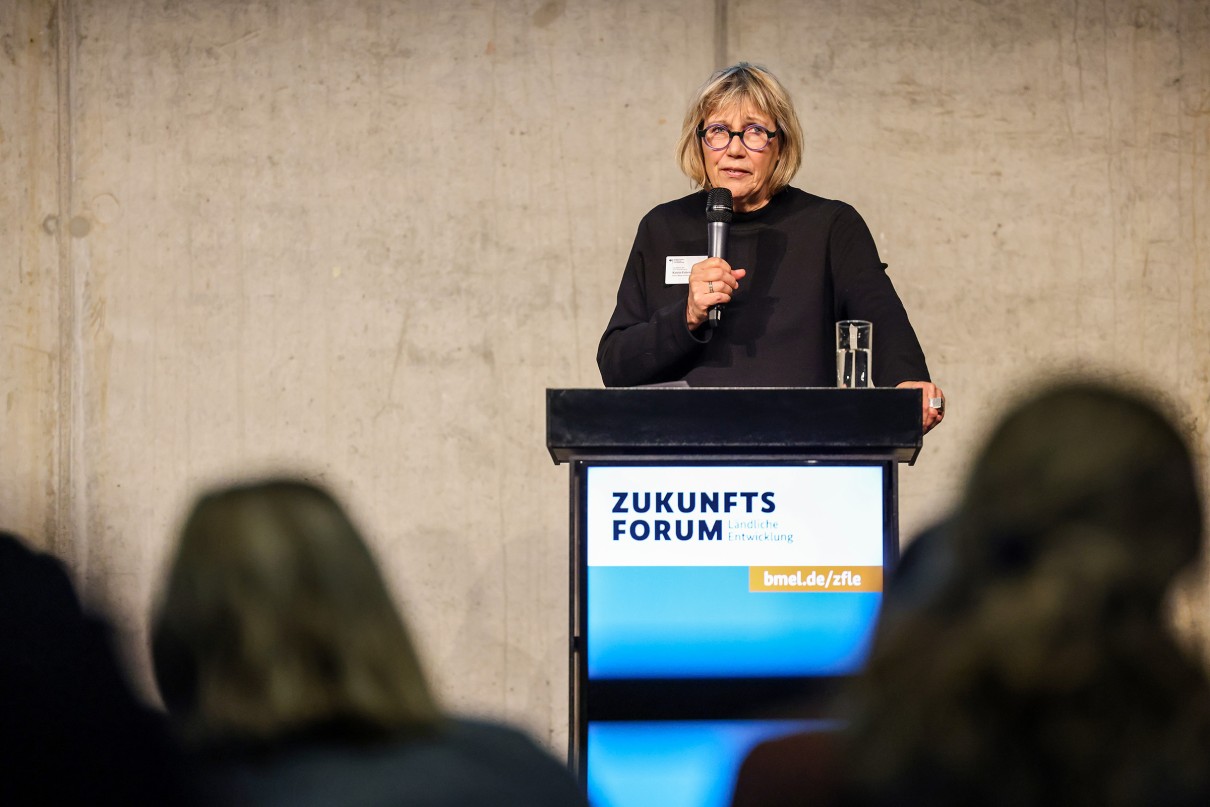Page content
Social glue: Volunteers in the countryside
They make the rural population mobile with community buses, help children with their homework, get involved with the voluntary fire brigade or breathe new life into empty shops with neighbourhood meetings. Volunteers are an important link in society, emphasised Federal Agriculture Minister Cem Özdemir at the opening of the Future Forum for Rural Development on Wednesday morning, which was also attended by Economics Minister Robert Habeck.
This is particularly true in rural areas, as many public services are provided by citizens - largely unpaid. The expert forum "Predictable and affordable? Volunteering and commitment in rural regions", organised by the German Institute of Urban Affairs (Difu) and the Institute for Space & Energy, presented various projects that have been implemented as part of the "Municipalities innovative" funding measure. According to Dr Vera Grimm from the Federal Ministry of Education and Research, the aim is to make volunteering fit for the future and promote it by closely interlinking practice and research.
Cohesion in difficult times
In a keynote speech, Dr Stephanie Bock from Difu presented the initial situation of the projects. Dwindling services, deserted village centres, out-migration and an ageing population in structurally weak regions called for new, unconventional solutions without many resources. Dr Michael Kolocek from the Institute for Regional and Urban Development Research in Dortmund reported on his project "Z3- Zusammenhalt hoch drei". He analysed villages in the Rhenish lignite mining area. Some were threatened with resettlement for a long time, others had already left their homes and rebuilt a community in new places. Despite the difficult conditions, cohesion in these villages was good. He attributes great importance to a full-time village manager as a link between politics and volunteers. He resolves conflicts and administrative tasks.
Carl Schlehmeier from the Rural Development and Innovation Service in the district of Lippe dealt with the question of whether the value of voluntary work can be calculated. In his analysis, he compared the time and costs of volunteers with the remuneration equivalents of service providers and was thus able to visualise the regional economic effects. Such key figures could help, for example, when negotiating expense allowances or funding with politicians.
Examples from Brandenburg
Dr Nora Rigamonti from BTA Cottbus focused on senior citizens from Lusatia. She brought them together with students in sub-projects such as storytelling salons and pop-up stores. The result was a dialogue-based research process and a normalisation of citizen science, a research approach that took greater account of the experiences of lay people. Finally, Mayor Frederik Bewer brought encouraging examples from Angermünde. The town has already been able to make vacant properties available for civic initiatives on several occasions. The "Haus mit Zukunft", for example, has established itself as a community centre. The Angerwerk has become a centre for start-ups and transformation.



